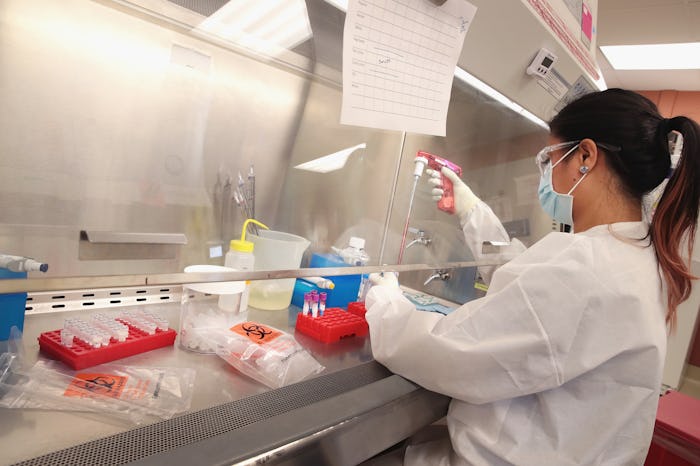Life

What Does The Zika Vaccine Trial Consist Of? There Are A Few Of Them
As more Zika cases pop up in the United States, there's some solace to be had knowing that vaccine trials are underway. There are a few of them being done all over the world, but the National Institute of Health Zika vaccine trials are now being done on humans, so things are moving along. The National Institute of Allergy and Infectious Diseases (NIAID), which is part of the NIH, has 80 volunteers to participate in the clinical trial taking place at three study sites. Once it's injected, the body reads the Zika genes in the vaccine and starts to make proteins found in Zika and those proteins start to get in formation that resembles the virus.
In theory, the body will become immune to these and then also the virus. There's no infectious part of Zika in the vaccine, so no one should catch Zika by participating in the study. In other clinical trials, the vaccine was deemed totally safe and successful. According to the NIH, this is very similar to the vaccine created by the NIAID team for West Nile Virus.
There is another vaccine being tested by Inovio Pharmaceuticals that works the same way and contains two existing drugs that they believe fend off any brain damage caused by Zika virus. That vaccine is now being tested on 160 volunteers in Puerto Rico, which has been hit hard by the virus.
The momentum is good so far. NIAID Director Anthony S. Fauci, M.D. said in an NIH stattement that, “NIAID worked expeditiously to ready a vaccine candidate, and results in animal testing have been very encouraging. We are pleased that we are now able to proceed with this initial study in people." But it won't be immediately available. "Although it will take some time before a vaccine against Zika is commercially available, the launch of this study is an important step forward," Fauci said. Likewise, the Inovio vaccine won't be available, if successful, for another year.
Complicating matters on the NIAID side is the Zika funding bill, which is currently being held up in the Senate due to disputes over Hyde amendment language in the bill that would block women's health centers from receiving federal funds to perform abortions on pregnant, Zika infected women. The NIH has been allocating funds from other areas of research — like cancer and diabetes — to pay for the research and the trials. NIH funds are set to run out by the end of September, which would slow down the progress of any more vaccine development, according to Fauci.
If Congress doesn't act soon, all of this hard work might be for nothing. But between the work being done in the private sector, like at Inovio and through the NIH, a Zika vaccine should eventually be available. But it might be a little too late for those already infected.